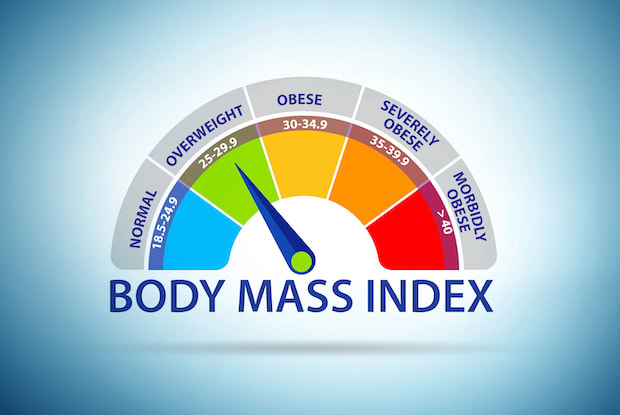Are Weight Control Medications Safe? What to Know Before Using Them
Are Weight Control Medications Safe? What to Know Before Using Them
Table of Contents
I. What Are Weight Control Medications?
III. Who Should Consider These Medications?
IV. What to Expect During Treatment
Prescription medications for weight control have been gaining attention as more people look for support beyond diet and exercise. These treatments are designed to help with long-term weight loss by reducing appetite, improving metabolism, or both. But despite growing popularity, many still wonder if these drugs are truly safe.
Before starting any weight loss prescription, it’s important to understand how they work and what risks they might carry. Some people respond well and see major improvements in their health. Others may face side effects or find that the benefits don’t outweigh the downsides.
In this article, we’ll explore how weight control medications are used, who they’re meant for, and what to watch out for along the way. If you’re thinking about taking one of these medications, this guide will help you make an informed and confident decision with your provider.
Quick Takeaways
- Weight control medications support appetite management and metabolism
- They’re usually recommended for people with obesity or weight-related conditions
- Common side effects include nausea, fatigue, and stomach issues
- Most are considered safe when used under a provider’s care
- Not everyone is a good candidate—screening is important
- Talk to a doctor before starting any prescription for weight loss
What Are Weight Control Medications?
How They Help with Weight Loss
Weight control medications help people manage their weight in a few different ways. Some reduce hunger by acting on the brain. Others slow down digestion, allowing you to feel full for longer. A few even affect how the body processes fat. These changes make it easier to cut back on food without constantly feeling hungry.
Doctors usually prescribe these medications to people with a BMI over 30. If someone has a lower BMI but also has conditions like high blood pressure or diabetes, they might qualify, too. These medications are not meant to replace healthy habits, but they can give extra support when combined with diet and exercise.
Common Prescription Types
There are a few different categories of weight control medications:
- GLP-1 receptor agonists like semaglutide or liraglutide
- Appetite suppressants like phentermine
- Fat absorption blockers such as orlistat
Each one works in a different way. Some reduce appetite, while others change how food is processed in your body. Many of these drugs are taken daily, but some only need to be taken once a week.
The right choice depends on your health history, preferences, and how your body responds. A doctor will consider your goals and any medical conditions before recommending one. Some people may do better with one type of medication than another. The best results come from a mix of the right prescription and a strong support plan that includes regular meals, activity, and follow-up care.
Why They’re Not for Everyone
Weight loss medications are usually prescribed to people who meet specific health guidelines and who have already made efforts to lose weight through diet and exercise. These medications are meant to support those efforts, not replace them.
Doctors also check for health problems that could make taking these drugs risky. Conditions like high blood pressure or thyroid issues might make certain medications unsafe. That’s why a full health check is important before getting a prescription. It helps your doctor choose the safest and most effective option for your body.

Understanding the Safety
What the Research Says
Many weight loss medications have been tested in clinical trials and are generally considered safe when used with medical guidance. People who take them often lose more weight than those relying on diet and exercise alone. These medications may also lead to better numbers for blood pressure, cholesterol, and blood sugar.
Still, no drug is risk-free. Doctors prescribe these medications only after reviewing your full medical history. They also check in regularly to watch for side effects or health changes.
Taking your medication the right way makes a big difference. Following your provider’s instructions and reporting how you feel can help you stay safe and improve your results over time.
Short- and Long-Term Risks
Side effects vary depending on the medication. Some people deal with nausea or changes in digestion. These symptoms are often mild and go away after a few weeks. Others might need to stop the medication if symptoms don’t improve.
Here are a few things to consider before starting:
- Do you have any chronic conditions like heart disease or kidney problems?
- Are you pregnant or planning to become pregnant?
- Are you taking other prescriptions that could cause interactions?
In rare cases, certain medications may raise the risk of mood changes or gallbladder issues. Regular check-ins with your provider help manage these concerns.
Who Should Consider These Medications?
Medical Guidelines and Eligibility
Weight control medications aren’t for casual use—they’re meant for people facing medical risks due to their weight. Doctors generally prescribe them to patients with a BMI of 30 or higher. If someone has a BMI over 27 with conditions like type 2 diabetes, high cholesterol, or sleep apnea, they may also qualify.
Before writing a prescription, healthcare providers review your health history and weight loss goals. This helps them find a medication that’s safe and effective for your situation. They’ll also look at how much weight you’ve lost (or gained) over time and whether lifestyle changes have been tried first.

When to Avoid Medication
Not everyone is a good match for weight loss prescriptions. Some health conditions can make these drugs unsafe. For example:
- People with certain heart problems may need to avoid stimulants.
- Anyone with a history of thyroid cancer should steer clear of GLP-1 medications.
- Pregnant or breastfeeding women should not use weight loss drugs.
If you have a complex medical history or take several medications, your provider may recommend another approach. Safety is the top concern, and some people face more risks than benefits.
These prescriptions are only one part of a larger plan. Healthy meals, regular movement, and good sleep habits are just as important. When combined with a full wellness routine, medication can offer real support—but it’s never the only answer.
What to Expect During Treatment
How the Process Works
Starting a weight control medication usually begins with a visit to your doctor. They’ll review your health and go over your medical history. If a prescription is right for you, they’ll explain how to take it and what side effects to expect.
Most plans also include follow-up visits. These check-ins help your doctor see how the medicine is working and whether any changes are needed. Staying in touch with your provider helps catch side effects early and keeps you on track.
Tips for Better Results
Weight control medication is most effective when it’s part of a bigger plan. You’ll get the best results by:
- Eating regular, balanced meals
- Being active most days of the week
- Getting enough rest at night
- Managing stress in healthy ways
It’s also important to stay patient. These medications aren’t designed to cause overnight changes. Safe weight loss takes time and steady effort. Keeping up with your doctor visits and being honest about how you feel can make a big difference.
Learn More With ScriptsMD
Weight control medications can be a safe and helpful tool for people with medical reasons to lose weight. When used correctly and under a doctor’s care, they often lead to better health outcomes. Still, they’re not the right fit for everyone. It’s important to understand how these medications work, what side effects to expect, and whether they fit your overall health goals.
For more support navigating your insurance benefits for weight loss treatments, contact ScriptsMD today.
